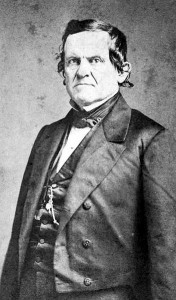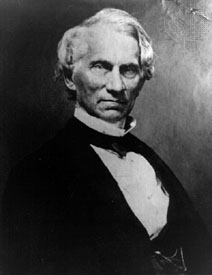From The New-York Times December 29, 1860:
THE SECESSION MOVEMENT.; THE SOUTH CAROLINA CONVENTION.
CHARLESTON, Friday, Dec. 28.
An Ordinance entitled “An Ordinance to amend the Constitution of South Carolina in respect to the Executive Department,” was passed in the secret session of the Convention yesterday.
It provides as follows:
First — That the Governor have power to receive Ambassadors, Ministers, Consuls and agents of foreign Powers; to conduct negotiations with foreign Powers; to make treaties by and with the advice and consent of the Senate; to nominate all officers by and with the advice and consent of the Senate; to appoint Ambassadors, public Ministers and Consuls as the General Assembly may previously direct, and also all other officers whose appointment has not otherwise been provided for by law; to fill vacancies during the recess of the Senate by granting commissions which shall expire at the end of the next session of the Senate; to convene the Senate whenever he thinks it necessary; provided, nevertheless, during the existence of the Convention that all treaties, directions for the appointment of Ambassadors, Ministers, Consuls, etc., be subject to the advice and consent of the Convention.
Second — That the Governor immediately appoint four persons with the advise and consent of the Convention, who, with the Lieutenant-Governor, shall form a council to be called “the Executive Council,” whose duty it shall be to advise with him.
All obligations of secresy in regard to the above ordinance were withdrawn.
CHARLESTON, Friday, Dec. 28.
The Convention met at noon.
Mr. RHETT spoke of the report of the Committee who had had under consideration the address to the people of the Southern States, and also on the ordinance for the formation of a Southern Confederacy. He said the object was to insure a speedy organization for a permanent protection of our rights. Texas and Arkansas were at last active in favor of the proposition. He advocated the election of double the number of Representatives to the General Convention as were in the present Congress, and was in favor of the adoption of articles of Confederation for a Provisional Government.
In the secret session yesterday, Mr. MEMMINGER, to whom had been referred the resolutions of the Convention on citizenship, reported an ordinance, that every person residing in South Carolina at the time of its secession from the United States, whether a born resident or a naturalized citizen, shall continue until death a citizen of South Carolina, unless a foreign residence be established, or notice of intention be given of expatriation; also, that all free whites born within the territory of the State, or those born outside the territory, whose father was then a citizen, shall be deemed citizen; also, persons from any one of the United States, who, within twelve months from the secession of this State, shall reside within its territory, with the intention of remaining, shall, upon taking the oath of allegiance, be declared a citizen; also, that citizens of other States, coming here after the expiration of a year from the date of secession, and actually residing seven months, with the intention of remaining, shall become citizens upon taking the oath of allegiance; also, all free whites entering the military, naval or civil service of the State, shall become citizens upon taking the oath of allegiance.
1) The power of the Convention is interesting to me. The appointment of officials is subject to the advice and consent of the Senate – “provided, nevertheless, during the existence of the Convention that all treaties, directions for the appointment of Ambassadors, Ministers, Consuls, etc., be subject to the advice and consent of the Convention”. I guess this makes sense because the delegates to the Convention were elected to decide on secession and possibly create a new government. South Carolina is using the U.S. template. People elected delegates to the Constitutional Convention to decide whether or not to scrap the Articles of Confederation and possibly set up an alternative.
2) I goofed a couple days ago when I said that South Carolina had to be uncertain whether there would be a Southern Confederacy – there is a lot of evidence that many states were interested. However, even today I’m reading how South Carolina’s governor is going to be able to appoint and receive ambassadors – and to make treaties. But in a couple months there might be a new southern nation to override all that work.


